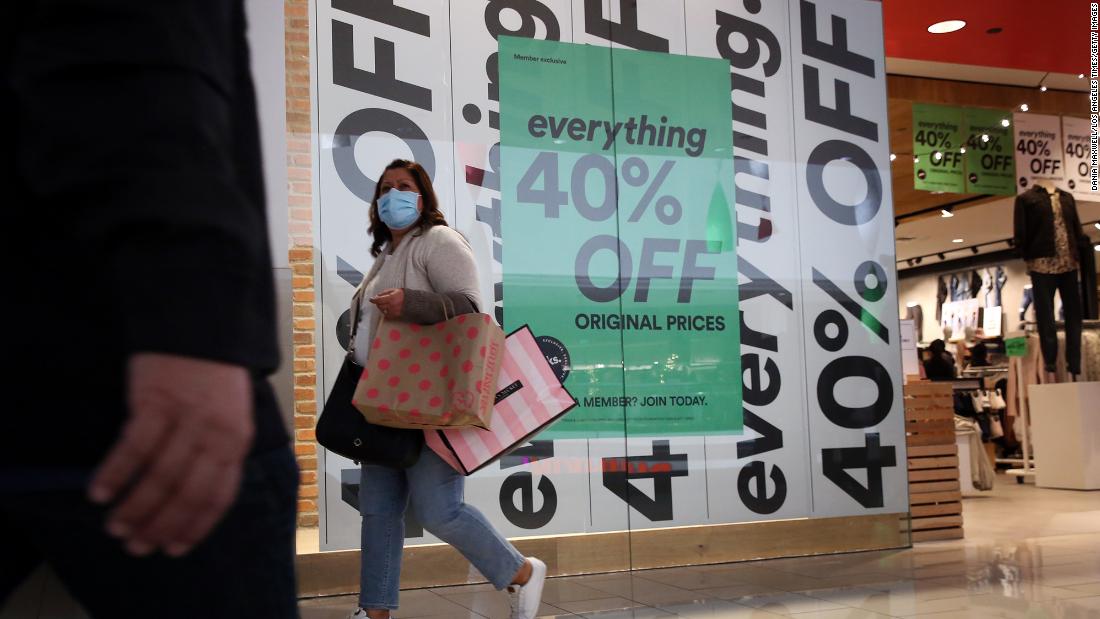
Sales fell 1.1% last month from October, the Commerce Department said Wednesday. According to an analyst survey compiled by Refinitiv, sales were expected to decline 0.3% month-on-month in November.
“The numbers are much weaker than expected,” Gus Faucher, PNC Financial Services Group chief economist, said in an email. “The economy will look much softer at the end of 2020.”
Clothing stores, restaurants, electronics stores and gas stations led to the decline in sales, while spending at supermarkets and online retailers was noticeable.
Overall, retail sales are up 4.1% compared to last year. Spending at online retailers is up 29.2% from the same time last year.
Retail was helped by federal aid programs during the pandemic, but they have ended.
An additional $ 600 weekly unemployment insurance policy, which was part of the government’s first stimulus bill, expired in late July. Since then, Congress has failed to agree on a new stimulus for unemployment benefits.
“Without stimulus, declines in retail are likely to continue and may become severe as millions of Americans will lose unemployment benefits the day after Christmas,” Robert Frick, business economist at Navy Federal Credit Union, said in a note to customers on Wednesday.
There is a wide variety of holiday forecasts this year, reflecting the uncertainty surrounding the pandemic. Real estate company CBRE expects holiday sales to rise by less than 2% this year from 2019. Meanwhile, Wells Fargo economists have forecast a 9% increase as consumers shift their spending from things like travel to toys, electronics and other gifts.